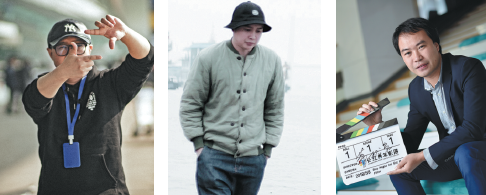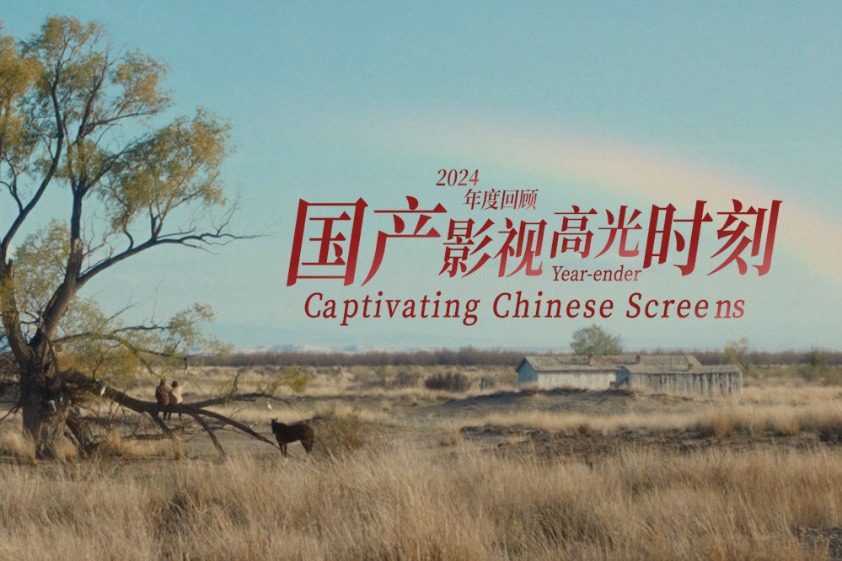Documenting the fight against the epidemic
Some members of the film and TV industries are documenting the fight against the epidemic, even though all shoots in Wuhan have been postponed, Xu Fan reports.

 Chinese directors Shao Jin (left), Zhang Xiaosha (center) and Dong Songyan share strong bonds with Wuhan, the epicenter of the novel coronavirus outbreak. The battle against the outbreak offers them a source of inspiration for their cinematic works. CHINA DAILY
Chinese directors Shao Jin (left), Zhang Xiaosha (center) and Dong Songyan share strong bonds with Wuhan, the epicenter of the novel coronavirus outbreak. The battle against the outbreak offers them a source of inspiration for their cinematic works. CHINA DAILY
A few days after the lockdown of Wuhan, the China Federation of Radio and Television Association, an industry body, issued a notice that required all film and TV crews to suspend shooting in the city.
Being self-quarantined in a hotel and having to eat instant noodles most of the time, Shao says he closely followed information about patients battling the virus in the most-affected areas.
Aside from editing the footage of Manual of Youth Entrepreneurship the crew had shot before the lockdown, Shao mostly focused on his volunteer work. He helped to organize donations of food for medical workers in Wuhan's hospitals.
"I'm now writing a film script inspired by my work as a volunteer. I hope it will tell people more about the volunteers and medical workers in Wuhan, who are ordinary people doing great things."
Some local filmmakers who had left Wuhan a few days before the lockdown are missing the city.
Dong Songyan, who has a film, TV and advertisement company, says his corporate partner's mother was transferred to an intensive care unit because of an acute lung infection on Jan 11 that was not diagnosed as a coronavirus infection then.
"His father later developed such symptoms as fever, cough and pneumonia. He was quite stressed, quickly isolating his children in another apartment," says 37-year-old Dong.
Considering it as a warning as well as hearing about suggestions from some of his friends who work in hospitals, Dong says his company placed importance on prevention earlier than most residents in Wuhan. "I purchased some face-masks and dispatched them to all people in my company, urging them to be cautious."
But it was still a shock when Dong heard Wuhan was locked down on Jan 23, two days after he'd returned to his hometown in Hengyang, Hunan province.
"My feelings were mixed. For a moment I thought I had betrayed Wuhan, which has seen my transition from a young college student to a middle-aged man. I got married, became a father and launched my own business there," he adds.
Dong graduated with a degree in animation from the Wuhan University of Technology. He has lived in Wuhan for 18 years. His directorial debut, The Best Summer, was shot there in 2018. Last year, he raised a big budget to shoot Forever Young at the No 14 Middle School of Wuhan and Wuhan High School, with more than 300 students as extras.
"The story is about a team of four students who overcome a series of challenges to win a poker competition. Personally, I have always fancied such coming-of-age themes," he says.
But due to the epidemic-all the country's theaters are shut-the film, scheduled to be theatrically released this summer, may take time to come out.
Zhang Xiaosha, a film director, predicts the epidemic will cause "a huge loss" to most investors and theater operators.
Living in Wuhan for over a decade before moving to Beijing several months ago, Zhang, who was born in Xiantao, Hubei province, shot his directorial debut, My Son Has Gone to Another Planet, in central Wuhan.
Zhang says the real-life stories occurring during this battle against the epidemic-h(huán)ailing heroes or exposing problems-could be retold in cinema.
"It could be a duty of the people working in films and TV to record and produce such stories."
Contact the writer at [email protected]





































